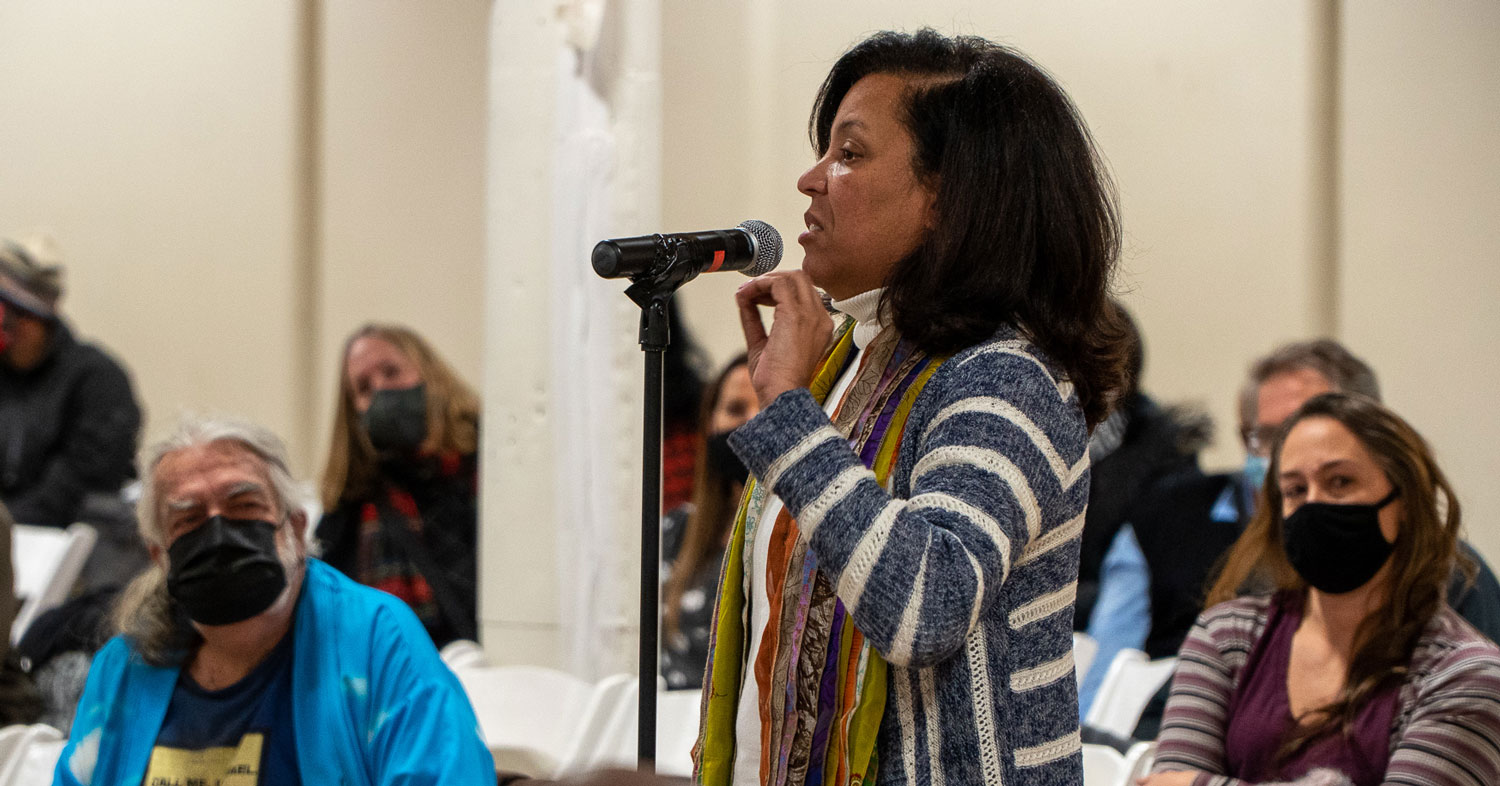Community members blast proposal for regional charter school in New Bedford
Community members blast proposal for regional charter school in New Bedford

Community opposition overwhelmed proponents of a new charter school eyed for New Bedford during a recent public hearing before members of the state Board of Elementary and Secondary Education.
The state hearing, held on Dec. 15, drew several hundred people to New Bedford’s Kilburn Event Center.
Educators, students, parents, civil rights leaders, community activists, school administrators, business owners, and state and local elected officials aligned in unequivocal opposition to the proposed Innovators Charter School, which is seeking state permission to open in New Bedford in the fall. If approved, it could grow to enroll more than 700 students from the area in grades 6 to 12.
The mayors and school superintendents of New Bedford and Fall River were the first speakers — and both blasted the ICS proposal as one that would simply duplicate programs in the public schools while wreaking financial havoc in their cities. They shared these sentiments — which they voiced to BESE Chair Katherine Craven and Vice Chair James Morton, who presided at the hearing — separately in a 10-page letter to Governor Charlie Baker.
“They come and pretend they are offering a choice, but what they really offer is a parasitic relationship with the public schools, taking away the resources that should be used for all students.”
Leila Rosa
Several elected officials — including school committee members from New Bedford and Fall River and state Representatives Antonio Cabral, Carole Fiola and Christopher Hendricks also — urged the board to reject the charter proposal.
“The community is united in opposition to this,” Cabral said.
Many speakers noted the unfairness of allowing a charter application to proceed while the state has frozen the assessment data used to determine the availability of charter seats in a district. Officials from the New Bedford Public Schools pointed to dramatically rising graduation rates as evidence that years of work to improve learning conditions in the city are paying off.“We worked for 10 years to improve funding for our schools, and we finally did it. Meaningful change is just beginning to be realized,” Fiola said. “We finally have the resources we need. Please don’t dilute them.”
Public high school students from New Bedford and Fall River spoke about the opportunities they already have to earn college credits and participate in robust career exploration programs, which are the types of offerings that the charter proponents are trying to spin as “innovative.”
Members of the grassroots New Bedford Coalition to Save Our Schools testified about the connections between officials at BayCoast Bank, a financial backer of the school, and the ICS applicants.
.jpg?la=en&hash=52AEF393DC0BF559F8AC80C06700DFC5E7CFFFA7)
Several bank executives, including its CEO, would serve on the school’s privately appointed board, while several administrators who the ICS application says would work at the school are corporators of the bank, according to the most recent annual report of its mutual holding company.
The NBCSOS highlighted the lack of New Bedford and Fall River residents on the proposed governing board for ICS, noting that some members live out of state.
LaSella Hall, president of the NAACP chapter in New Bedford, denounced ICS as “immoral” for seeking to take funding away from public schools. Though he was among the many who were not given time to testify, Hall delivered his powerful remarks to those who remained in the room after BESE closed the hearing. Hall, like others, focused on the terrible financial impact that opening ICS would have on the region’s public schools, which would lead to separate and unequal opportunities for families, including many families of color.
“The community is united in opposition to this.”
State Representative Antonio Cabral
“In 1954, the Brown decision sought to eliminate any further acceptance of racism and discrimination due to a dual system,” Hall said, referring to the U.S. Supreme Court ruling in the Brown v. Board of Education case. “We rejected it then, and we reject it now. The reality is that Black and brown children matter. It was disheartening then, and it is disheartening now.”
NBCSOS member and New Bedford parent Leila Rosa, an education professor, lumped ICS in with the wave of charter proposals that have hit New Bedford, explaining the charter industry preys on communities where poverty is high and school funding historically has been inadequate.
“They come and pretend they are offering a choice, but what they really offer is a parasitic relationship with the public schools, taking away the resources that should be used for all students,” she said.
Members of several area labor unions also were at the hearing protesting the ICS application. Several MTA and AFT Massachusetts educator locals joined members of the New Bedford Educators Association and the Fall River Educators Association in demonstrating opposition to the charter.
Anthony Sapienza, chair of the board of the New Bedford Economic Council and the retired CEO of New Bedford’s Joseph Abboud Manufacturing Co., said the business community opposes ICS.
“It’s the wrong school at the wrong time,” he said.
.jpg?la=en&hash=75C27D0773595B11ACD88E4A96769370CCD9F8AE)
MTA President Merrie Najimy told the BESE members that supporting yet another charter school in the region reinforces structural racism because it fosters disinvestment in the public schools that educate the majority of students in the region. Most of those children are students of color, she said.
“Listen to this community that is telling you ‘No’ to this charter school because charter schools, you all know, are not public schools,” Najimy said. “They are publicly funded, privately operated schools.”